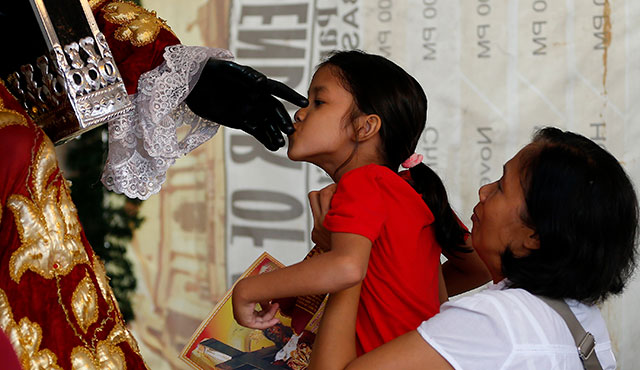Parents want to raise children who grow up to be generous, kind, patient, happy and successful. Comparably few of them understand that a close relationship to God is a fundamental part of meeting that goal.
Even Catholic parents who want the best for their kids fail to assist them in maintaining strong connections with their faith. Too often, parents fall off the program after their child’s first Holy Communion and never get their kids confirmed when they reach the right age.
Many Catholic adults, then, are practicing their faith without having closed the loop, so to speak, on the full range of sacraments, background and understanding of Catholicism.
The time to address this, of course, falls to parents of young children who have yet to receive the sacraments offered each spring, including reconciliation (confession), first Holy Communion, and confirmation.
“A lot of times parents feel ill-equipped to care for their kids’ spiritual lives,” explains Katie Dawson, director of Parish Faith Formation for the Diocese of Orange.
“Whether they talk about it or not, children have a deep need for spiritual understanding,” she adds. “It doesn’t have to be as daunting as it first appears. A fundamental relationship with God and the revelation of Christ is what our faith revolves around. Including the life of the Church and the sacraments, nurturing this relationship is the highest priority a parent has.”
In addition to ensuring our kids partake in the sacraments, simple ways to nurture their faith include:
Developing attention to God. This can be as simple as reading Scripture together or even discussing the right ways to live according to God’s laws.
Reading Scripture, discussing it with children verse by verse to ensure they understand the message. Is this a test of our faith, or a consolation? How do we respond?
Explaining why it is critical for Catholics to examine their actions, coming to a clear understanding of God’s plan for us.
Learning to pray, beginning with the prayer of the day, saint of the day, or Scripture readings for the day.
Continuing to pray as a family and individually, no matter what happens in our lives.
Being faithful to the body of Christ by attending Mass faithfully. We must worship at Mass on Sundays, holy days of obligation, and during Lent, thus developing a lifelong habit of worshipping and praising God.
“Developing attentiveness to the movement of God in their soul is a vital step toward helping children move from their childish faith to the adult faith that will carry them through the challenges of life and help them become who they are meant to be,” Dawson notes.
“We must nurture the faith they have and work on unexamined concerns or doubts to arrive at a clear understanding,” Dawson states. “You can’t give what you don’t have, so this requires parents to cultivate their own lifelong faith practices that support our children’s lives in faith.”
Dawson recommends “How to Raise Good Catholic Children,” a 50-year-old book for parents raising children in the faith.
The book, authored by Mary Reed Newland, is described on Amazon.com as “a rare treat for today’s parents: a wise and readable book on child care that derives its wisdom from the Catholic home rather than from psychologists.” Newland drew on her own experiences as the mother of seven.
“Because it is rooted in experience, not in theory, nothing that Mrs. Newland suggests is impossible or extraordinary,” Amazon says. “As you reflect on experiences with your own children, you’ll agree that hers is an excellent common-sense approach to raising good Catholic children.”

